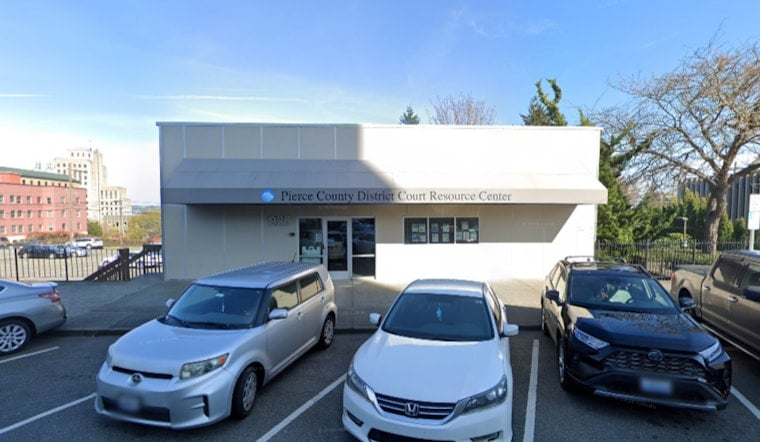As North Carolina’s senior population grows rapidly, understanding the state’s tax benefits for residents over age 65 becomes essential. Seniors form a vital part of North Carolina communities, playing active roles from bustling Raleigh to charming coastal towns like Wilmington. Recognizing their contributions and unique needs, North Carolina provides a mix of tax relief programs, including a special extra standard deduction for those age 65 and above. This article provides a comprehensive, city-centered exploration of North Carolina’s extra standard deduction for seniors, including how it works, who qualifies, the financial impact, and the broader context of senior tax benefits statewide.
Demographic Landscape: Seniors in North Carolina
Growth and Distribution
North Carolina is becoming an increasingly senior-friendly state. Between 2020 and 2023, metro areas like Raleigh-Cary and Wilmington experienced an 18% jump in their population aged 65 and older—well above the national average increase of 9%. Cities such as Charlotte, Asheville, Greensboro, and Winston-Salem are also seeing surges in their senior populations, while rural counties like Yadkin and Jackson already report nearly 20% or more residents in the 65+ category.
-
By 2041, it’s projected that Wake County’s senior population will grow from 145,237 to over 319,000, and Mecklenburg County’s from 138,129 to over 262,000.
-
Raleigh, Wilmington, Asheville, and communities along the coast and in the Piedmont have become desirable retirement destinations.
Understanding the Standard Deduction Framework
What Is a Standard Deduction?
The standard deduction is a fixed dollar amount that reduces your taxable income, lowering the amount you owe in income taxes. It is available to all taxpayers who do not itemize deductions.
What’s Different for Seniors?
Federal and most state tax codes provide a higher standard deduction for seniors (those aged 65 or older). The rationale: to ease financial burdens during retirement, when income may be limited and healthcare costs increase.
North Carolina’s Standard Deduction: The Basics
General Standard Deduction Rules
-
For the 2025 tax year, North Carolina features a flat individual income tax rate of 4.25% (set to decrease further in coming years).
-
The standard deduction varies by filing status:
-
Single/Unmarried: $15,000
-
Married Filing Jointly or as Surviving Spouse: $30,000
-
Head of Household: $22,500
-
Married Filing Separately: $15,000
-
The Extra Standard Deduction for Seniors Over 65
How Much Is the Extra Deduction?
For 2025, North Carolina seniors over 65 claim an additional deduction on top of the standard. The extra deduction varies according to filing status:
| Filing Status | Standard Deduction | Extra Deduction (Over 65) | Total Deduction |
|---|---|---|---|
| Single/Unmarried | $15,000 | $2,000 | $17,000 |
| Married Filing Jointly | $30,000 | $1,600 per spouse | $33,200 (if both over 65) |
| Married Filing Separately | $15,000 | $1,600 | $16,600 |
| Head of Household | $22,500 | $2,000 | $24,500 |
| Surviving Spouse | $30,000 | $1,600 per spouse | $33,200 |
If one spouse is over 65, they receive the extra deduction for just that spouse. If both are over 65, they receive it for each.
Example Scenario
A married couple in Charlotte, both over 65, filing jointly:
-
Basic Standard Deduction: $30,000
-
Extra Deduction: $1,600 × 2 = $3,200
-
Total Deduction: $33,200
A single Wilmington resident over 65 would receive:
-
Basic Standard Deduction: $15,000
-
Extra Deduction: $2,000
-
Total Deduction: $17,000
Eligibility and Important Rules
Who Qualifies?
-
You must be 65 or older by the end of the tax year. (You are considered 65 on the day before your 65th birthday.)
-
The extra deduction applies to each spouse if both meet the age threshold.
-
Those legally blind may be eligible for an additional deduction.
Does It Stack With Itemized Deductions?
No. You must choose between the standard deduction (including the extra senior amount if eligible) and itemizing deductions. Taxpayers should calculate both to see which option is more advantageous. Generally, seniors in cities with higher property taxes, like Greensboro or Wake Forest, may find itemizing attractive only if their deductions exceed the sum of the standard and extra deductions.
Property Tax Breaks for Seniors
While the standard deduction is a valuable benefit for income taxes, North Carolina also assists seniors with property tax relief, especially important given rising housing costs in urban centers like Raleigh, Cary, and Winston-Salem.
Key Programs
-
Homestead Exclusion:
-
Available to residents aged 65+ with annual income under $37,900.
-
Excludes the greater of $25,000 or 50% of a home’s appraised value from property taxes.
-
Helps thousands in cities with high property values.
-
-
Circuit Breaker Property Tax Deferment:
-
Taxes are capped at 4–5% of income for eligible seniors.
-
The deferred portion becomes a lien, payable when the property is sold or ownership changes.
-
-
Disabled Veteran’s Exclusion:
-
Exempts $45,000 of a home’s assessed value from property taxes for qualifying seniors who are disabled veterans or surviving spouses.
-
Statewide and Local Context: Cities and County Facts
Tax Environment
-
State Income Tax: North Carolina’s rate is 4.25%, covering all income levels equally.
-
Property Tax: Average across the state is around 0.7–0.82% of a home’s assessed value.
-
Sales Tax: State rate is 4.75% with local add-ons, averaging a total of 7%.
Senior Population by City
-
Charlotte: Rapidly expanding senior population, expected to double by 2040.
-
Raleigh/Cary: Senior population surged by 18% between 2020–2023.
-
Wilmington: Over 18% growth in residents 65+, making it a top retirement locale.
-
Asheville and Winston-Salem: Becoming “aging-in-place” cities with robust support services.
-
Rural Counties: Yadkin, Jackson, and Columbus surpass 19% population over age 65.
Migration Patterns
In 2022, about 44,000 adults aged 60 and above moved into North Carolina from other states or abroad, attracted by age-friendly towns, moderate climate, and tax advantages.
Financial Impact: How Seniors Benefit
Case Studies
-
Scenario 1: A single retiree in Durham making $35,000 in retirement income:
-
Standard Deduction: $15,000
-
Extra Deduction: $2,000
-
Taxable income drops to $18,000 before any other credits, reducing state taxes by $85 compared to an under-65 taxpayer.
-
-
Scenario 2: Married retirees in Asheville, both over 65, with $60,000 total income:
-
Standard Deduction: $30,000
-
Extra Deduction: $3,200
-
Taxable income: $26,800, saving $136 in state taxes over those under 65.
-
Why It Matters
These deductions put hundreds of dollars back in seniors’ pockets, often covering rising costs for healthcare, home maintenance, and travel. In booming metros like Raleigh or Charlotte, where costs can be higher, these benefits provide meaningful relief. For those on fixed incomes, especially in rural areas, the impact is profound for day-to-day budgeting.
Planning Ahead: How Seniors Can Optimize Tax Savings
-
Check Your Eligibility: Confirm age or blindness qualification.
-
Examine All Available Exemptions: For homeowners, look into the Homestead, Circuit Breaker, or Disabled Veteran’s programs.
-
Track Itemized Deductions: If you have high out-of-pocket medical, property, or charitable expenses, itemizing may still make sense.
-
Consult Professionals: Tax codes and applications can shift—working with a local CPA in cities like Greensboro or Cary ensures you maximize all opportunities.
-
File On Time: Application deadlines matter, especially for property tax relief (often June 1st for most counties).
Myths and Clarifications
Do All States Offer This Extra Deduction?
No. While the IRS provides an extra standard deduction nationwide, not all states follow suit. North Carolina stands out for offering targeted extra deductions for seniors over 65 along with strong property tax relief programs.
Are Social Security Benefits Taxed?
In North Carolina, Social Security income is not taxable at the state level, offering one of the most significant financial breaks for seniors.
Does the Extra Deduction Increase Every Year?
Amounts can increase due to inflation adjustments or legislative changes. Always check the latest figures when filing.
Resources for Seniors
-
North Carolina Department of Revenue: Official updates on income and property tax provisions.
-
County Tax Offices: For detailed, local application processes (especially vital for Homestead or Circuit Breaker programs).
-
Senior Citizen Centers: In cities like Hickory, Fayetteville, and Wilmington, these centers often coordinate tax preparation help.
-
AARP North Carolina: Offers regular workshops and guidance for retirement, tax, and property planning.
Looking Ahead: The Future of Senior Tax Policy
With projections showing North Carolina’s senior population doubling in many counties by 2041, the state is continuing to expand age-friendly policies. Cities are investing in housing, transportation, and healthcare infrastructure tailored to the needs of older adults. Staying informed about evolving tax breaks will remain crucial for new and long-time residents alike.
Conclusion
The North Carolina extra standard deduction for seniors over 65 serves as a cornerstone of the state’s strategy to support its aging population. Whether you live in burgeoning urban hubs like Raleigh and Charlotte or peaceful rural counties, understanding these benefits can make a significant financial difference during retirement. Combine it with property tax relief and other programs, and North Carolina truly stands out as one of the most accommodating states for seniors nationwide.
Take advantage of all the resources and deductions available—so you can focus less on taxes and more on enjoying retirement in the Tar Heel State.
















Leave a Reply